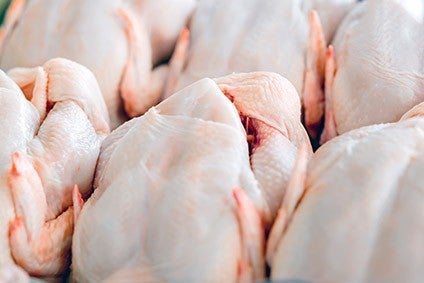
Factors including the spread of African Swine Fever (ASF) are likely to provide a filip for the global poultry market, according to analysts at Dutch investment bank Rabobank.
In its Poultry Quarterly Q4 2019 report – Challenging Global Supply – Rising Dark Meat Prices, Low Breast Meat Prices – Rabobank said global poultry markets are expected to see some recovery in the coming months.

Discover B2B Marketing That Performs
Combine business intelligence and editorial excellence to reach engaged professionals across 36 leading media platforms.
However, it warned that this recovery will be “under fragile conditions”.
It reports that key concerns include the on-going oversupply situations in many global markets, such as the EU, US and South Africa, and suggests a more disciplined supply chain should be the key to returning to profitability for the industry in the second half of this year.
Notable positives are the expected ASF-related strength in pork prices and the limited feed price upside risks, given the relatively good feed grain supply position expected in Europe and Latin America, it said.
Nan-Dirk Mulder, senior animal protein analyst at Rabobank, said: “Some market upside is expected to come from rising prices and demand substitution given the impact of ASF on global pork markets. However, upside for the global poultry industry will be limited in the short term.”

US Tariffs are shifting - will you react or anticipate?
Don’t let policy changes catch you off guard. Stay proactive with real-time data and expert analysis.
By GlobalDataRabobank points out that China – where ASF originated and continues to cause problems for the pork industry – buys relatively small volumes of chicken in global markets – mainly consisting of special dark meat cuts like feet, legs and wings. Breast meat is not a preferred product in China, and although demand for locally-produced breast meat may increase, there will be no interest in global traded breast meat as the price difference is too big, it said.
“Countries with access to ASF-affected China and Vietnam will see some better prices for dark meat, but a weak global demand for breast meat remains the key concern for global companies, as for many industries this is the profit maker,” the report said.
“In addition to the direct trade impact, there will be indirect price support for poultry industries in countries where the pork sector has good access to China, like the EU and Brazil.”





